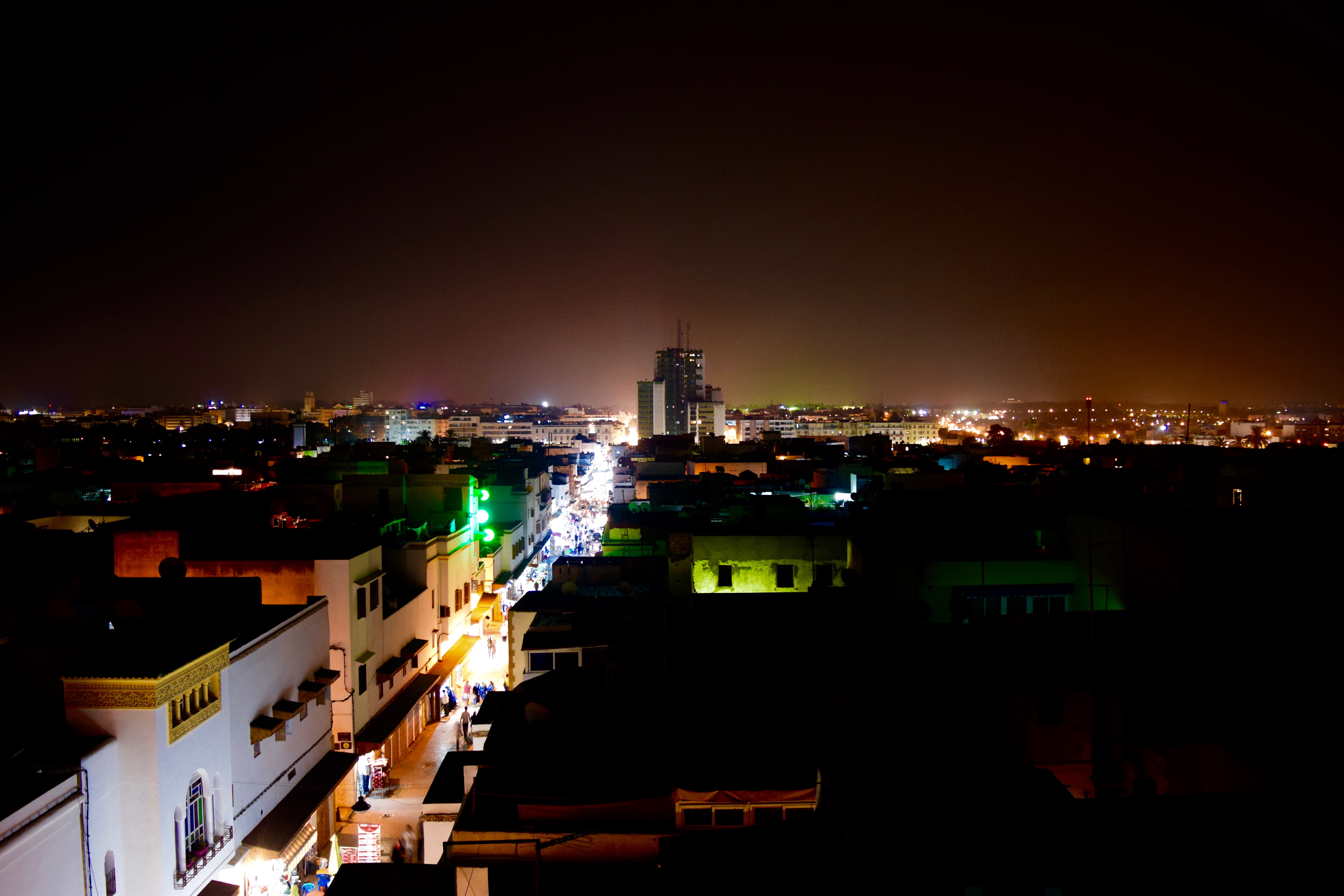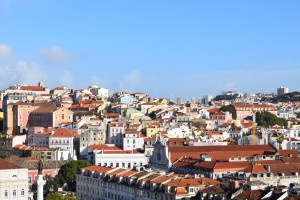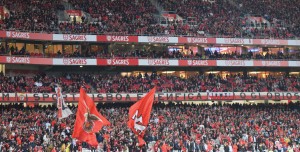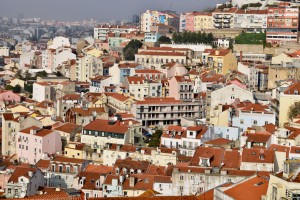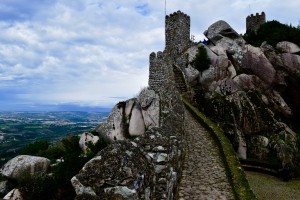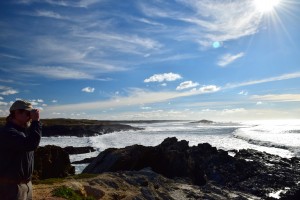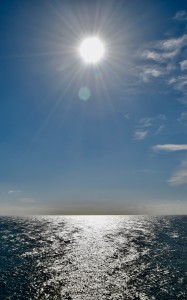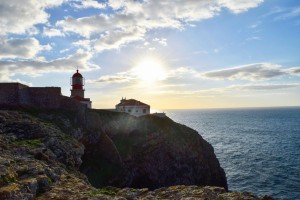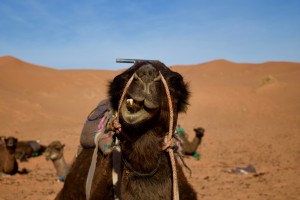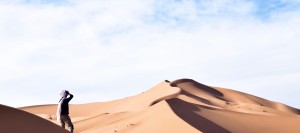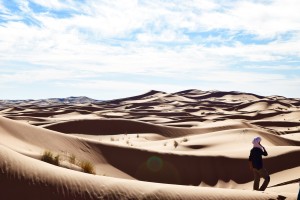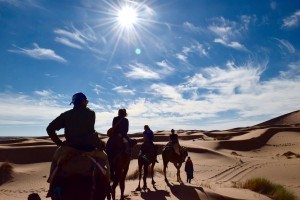Casablanca – The semester is now finished, and I am off to the next adventure. My feelings are mixed, it has been a bitter – sweet week.
I want to include the final few pages from the paper that I wrote on Morocco’s February 20th Movement. My motivations are two – fold. I want to give readers a sense of the kind of work that I was doing, and I want to shed some light on both an interesting political event, and the stories of a number of journalists and activists working in Morocco.
It is a long section that includes interviews with three Moroccans. There stories are inspiring and heartbreaking, and their experiences may help to illuminate Morocco’s unique brand of political repression. I don’t mean to demonize the Moroccan state with these stories, the situation in Morocco regarding press freedoms and political liberties is complex and nuanced. I do mean to tell the stories of these people, and hopefully increase their international visibility in some tiny way. Their safety depends on our attention. Italicized sections indicate quotes from the people I interviewed.
In the final section of my paper I will bring the discussion into the present, turning to the words of Moroccan activists, scholars, and advocates in order to weigh in on the idea of a so called “Moroccan Exception.”
On October 26th of 2011, an American Journalist named Richard Miniter published an article titled “Moroccan Exceptionalism”. The article compared the Arab Spring in a number of countries across North Africa. “We are seeing, across the coast of North Africa, the hopes of the “Arab Spring” dissolving into sporadic mob violence, often against religious minorities – Egypt; civil war – Libya; the rise of Islamist militants – Egypt, Libya and perhaps Tunisia; and unrestrained repression – Algeria. The sole exception on the North African coast is Morocco” (Miniter, 2011). In Morocco, protests mounted and spread to as many as 100 cities at the revolutions peak, citizens filled the streets calling for dramatic change, and the state didn’t dissolve. The Monarchy responded. The country liberalized in many important ways, a new Constitution was drafted and through Democratic process, a Parliament created. This phrase has also been the cause of immense controversy and argument in Morocco. To many, the changes instituted by the Moroccan state were barely cosmetic, and indicative of no real change.
As an American student looking in on this dispute and trying to find solid ground to stand on, I find myself at an impasse. To say that the Movement is dead, or that it isn’t dead, or that Morocco is exceptional, or not exceptional, any more or less free than any other country at any other time seems impossible. Morocco is different than every other Arab nation or any other nation of any kind. The Movement is not dead any more than it was ever alive. Political freedoms aren’t necessarily more or less protected today than they were in 2010, they are protected differently. I can’t help but feel as though my positionality makes it not only impossible but downright foolhardy for me to try to come to any meaningful conclusions about the legacy of the February 20th Movement. Further, the sheer volume of things that have happened since February 20th, 2011 in regards to political, economic, press, and social freedom in Morocco make it impossible for anyone to come to any conclusive findings about the full legacy of the Movement. With this impossibility in mind, I turn to the words of a number of Moroccan activists, scholars, and advocates. Their stories turned my research on its head many times over, and their bravery is nothing short of inspirational. As with all of the interviews included in this paper, these conversations are not meant to serve as quantitative evidence. The stories and testimonies of these people are their own, subject to their own biases, and then further subjected to mine as a listener and writer, and finally to the readers. They are all probably more critical of the Monarchy than the average Moroccan, and their words are not meant to be indicative of Moroccan sentiment on the whole. With that said, I do think that their positions as critics of the Monarchy make them privy to the abuses of liberties in ways that many ordinary citizens are not.
Maati Monjib is a Professor at the University of Rabat who teaches African Studies and Political History. He is a scholar and an intellectual as well as an often times outspoken critic of the Moroccan Monarchy. He became politically engaged at a young age, campaigning in 1979 to have the Shah of Iran removed from Moroccan following the Islamic Revolution in Iran. He continued to work with Leftist political groups through his University and remained politically active in Morocco until 1982 when he left for France to study after being “obliged to leave the country.” Maati was a key part of getting the February 20th Movement off of the ground. He organized the Movement’s first Press Conference on February 17th, 2011. Maati explained to me that in the same way that regional protests and revolutions had acted as a spark for Morocco’s Movement, they also served to cut it short.
“The Movement for democracy was strong: about 100 towns participated in the Movement, even as the minister of interior said 52. They were the widest in the Arab Spring world with the number of towns… In 2011 and 2012 there were pressures from the street, and the regime was obliged to open for more freedoms. More freedom of speech, protest, assembly, association, creation of new and activist associations. But then there was a coup in Egypt, a war in Syria, in Libya, in Yemen, and Iraq, it was really brutal. In time and in space it became very obvious that the Arab Spring was turning to civil war in many countries. So the regime in Morocco got leverage from that. Their message was worrying about the future of the country. A mother of three children told me in 2013 you have to stop any protest in Morocco because at least here they don’t kill us. At least in Morocco the state doesn’t kill us, so it’s better. Morocco began this Movement following the example of Arab countries and it stopped the protest not willing to follow that example. As long as the Arab Spring was synonymous with more freedoms there would be protests in the streets but when they saw that it was turning to wars they stopped.”
Maati told me that once the protests became less widespread, with less citizens on the street, the Monarchy’s tone changed.
“The monarchy has a very strong survival instinct, so they can accept demands to stay in power, to keep their position in power, to avoid revolution. But if the pressure is weakening they go back. The elite in power catch up and they took back all of their powers. 2011, 2012, we were really free because a lot of people were speaking out. They can’t arrest everyone. They can’t physically control everyone. We have only so many police officers, they can’t be mobilized all the time, they can’t control thousands of people. The problem was that when the Movement was weakened, we have only the most active people continuing. There are now less numbers and they are individually more dangerous to the regime. So they try to buy them off. They give them jobs for example in the regime press, in administration. Some material gifts. Its clever, they recruit you and then you know that you must stop criticizing. Defamation, pressure on the family, I know dozens of cases. For example maybe the father of an activist has a small shop, and then the Ministry of the Interior withdraws the permits. Or the police pull you over for over speeding and if you are connected to an activist they stop you for two hours, I know those cases. Every policeman in Morocco who stops me for anything, once he puts my name in his machine he has to be in contact with the political police and to say what I did and that I am with him. Its really bad for activists. Maybe I am over speeding by 5 kilometers, they can use this to defame you or put you under pressure.”
Maati has been thrust into the national spotlight a number of times. In April of 2014, Maati and a number of other academics and activists formed a committee to free independent Journalist Ali Anouzla from prison. They campaigned in Morocco and internationally, gaining recognition for their cause from Reporters Without Borders (RWB, 2016), Front Line Defenders (FLD, 2013) and Amnesty International (Amnesty, 2016), among others . After 39 days, Anouzla was freed, and the committee created to campaign for his freedom tried to gain official status as an association. They were denied legal recognition, and “Freedom Now” became a flashpoint of political controversy. Maati was subjected to blatant and widespread public defamation in the press, both officially regime controlled and supposedly independent. On August 31st of 2015, Maati was detained at the Casablanca airport and informed that he was wanted for threatening state security. Since then he has been prevented from leaving the country many times, and is defamed by state press incessantly. He has been threatened with hefty prison sentences, and he observes constant pressure from the Moroccan state.
“One day there were 10 men outside my door, they were here since 5 am. They came to my door and tried to open it, they left a part of the key in my door trying to unlock it. If they are close they can see everything in your flat. They use bluetooth, wifi, they can hear everything. Just to intimidate us. I came here and one policemen in uniform and one in plainclothes followed me and they surrounded me. I tried to open my door but I thought that they would get into my house so I didn’t open it. They sat by the windows and looked inside. They want to scare people. They begin to defame you and they are very patient. They give you opportunities to withdraw, they are very clever. They threatened me in their press and in the normal press. It’s very complicated, you can’t simply stop. If you stop they want more. They want to give you as an example for others not to follow your path. They expect you to then support them to all of your supporters. I decided to continue. Not to say more, not to say less, just continue. It was hard, defamation is not easy for the family. Sometimes I worried that people would believe the defamation, but in general people don’t believe the media.”
Maati and I spoke twice, both times in Rabat. He speaks nearly perfect English and has a quiet, confident air about him. His answers are thorough and exhaustive, interrogating every aspect of the questions that I posed to him. Our interviews often wound their way off track, as I would become enveloped in some history lesson that Maati was teaching me. Despite the enormous and often times terrifying pressure that the Monarchy places on him, he was incredibly open to me, sharing not only his own stories, but the names and contact information of his colleagues and friends. During our second conversation, sitting at an outdoor cafe in Agdal, I asked Maati if he worried that we were being listened to that day. Maati chuckled, and leaned forward in his seat, sipping his tea as he did so. He gestured behind him, back into the cafe. He told me that a few minutes earlier a man had entered the cafe who Maati recognized. The man had been at Maati’s apartment that morning. Maati suspected that he was a part of the political police. He didn’t think the man would do anything, his presence was merely a reminder. A reminder that the state has eyes and ears everywhere, a reminder to Maati that he wasn’t as free as he might feel, a reminder to me to keep a safe distance.
“In Morocco today you have more freedom for normal citizens. Lots of young people on Facebook critique the king, and they can’t be controlled. but they control more active Moroccans. They want to be efficient. Arresting hundreds of people is bad for them, there will be backlash from the population. But if they defame political leaders, arrest them, scare them, they scare potential leaders and prevent the leaders from organizing. They repress in many ways anti royalistthe intellectual elite. If it has some credibility, links with civil society, press, NGOs, foreign media, these people are seen as potentially politically dangerous.”
Khadijah Ryadi is a Moroccan activist living and working in Morocco. She was the President of the Moroccan Association of Human Rights (AMDH) between 2007 and 2013, when she was awarded with the United Nations Award for Human Rights. Her efforts in seeking accountability for victims from Hassan II’s reign, unbiased efforts towards democratic solution in Western Sahara, and her war on unjust gender laws in Morocco stand out as highlights from her time as President of AMDH. I spoke with Khadijah in the AMDH headquarters in Rabat. My French isn’t good enough to fully translate our conversation, so we relied on a translator to facilitate our interaction. Her words and experiences further complicate the already unstable idea of the “Moroccan Exception.” She was directly involved with the February 20th Movement, as was AMDH.
“Most of the original members of the February 20th Movement were either a part of AMDH or did some kind of education here. The first press conference was given right here in this room. It was the on February 17th, 2011, and we announced the first day of protest on February 20th. AMDH did a lot of local work and opened the door for everyone to become informed.”
AMDH is one of the biggest Human Rights advocacy groups in Morocco. They are internationally renowned for their unbiased work. Serving as President before, during, and after the Arab Spring, Khadijah was in a prime position to observe the changes that occurred between 2007 and 2013.
“After Hassan II died it was very open, even through his son taking power. Journalists could criticize the Monarchy and discuss all issues, Humans rights were better, it was more free. But then the terrorist attacks in 2003 changed it. Everything began to return to old ways, politics shifted. Lots of imprisoned people, lots of torture, people were held for months. Islamists especially were tortured and held captive. In 2011 the pressure from the streets in Tunisia, Egypt, and Morocco forced liberalization. Unfortunately the same repression has returned after 2011, after the people left the streets. Today we have really severe repression but it is through other methods that are not so easily seen. People who are arrested are charged with things that are not political. They say you committed rape, or you stole money. This system has become an instrument of the state to repress these people. They use the press to spread lies about people, to discredit people, to attack them. They ensure that there is no solidarity between the people and the prisoners. No one is sure whether or not you did it, and there is no line of trust. Before there were arrests, but it was on behalf of state security, or being a part of a political party. They were political prisoners which brought support from other governments and associations. Now they are treated the same, but they don’t have this same support.”
When I mentioned the “Moroccan Exception” Khadijah laughed. She had clearly heard the phrase before.
“I think that in Morocco, we like to say that there has been political democratic change, but that stability remains. It is not a new slogan, it was used after the 2003 terrorist attacks in Casablanca.”
“Would you say it is like propaganda?”
“Yes. I have a friend that says ‘we are not a stable country but we are a country that has been stabilized.’ We are very careful. We see what happens to some people and we know it can happen to us, so yes, we are very careful. One time I was in Belgium attending a conference, and a photo of me was taken with a blue water bottle and when the picture was published in the Moroccan press it was edited to look like red wine, and the article claimed that I was using the money from AMDH to buy red wine. You are surveilled, observed. Everyone is watching you, in your private life everything is watched. In the end it’s worth it, but you risk it all if you do this kind of activism in Morocco.”
Ali Anouzla is an award winning Investigative Journalist and a constant thorn in the side of the Moroccan Monarchy. In 2009 he published an editorial in Al Jarida al Oula about a deficit of democracy in North Africa. In it, he pointed to the Autocracies and Monarchies in Morocco, Algeria, Tunisia, Mauritania, and Libya, arguing that none of them contained a democratically legitimate government. In April of 2009, Anouzla was sued by Muammar Gaddafi under Moroccan law for defaming a foreign head of state. Anouzla was sentenced to a fine of 1,000,000 DH and 1 year in prison (Hesspress, 2009). On May 5th of 2010, Al-Jarida al-Oula was suspended due to financial reasons stemming from the Gaddaffi lawsuit and a lack of investors. Undetered, Annouzla founded Lakome.com in December of 2010. Lakome was an influential independent publication that acted as a vicious watchdog on the Moroccan Monarchy. A number of high-profile articles attracted the Monarchy’s attention. In January 0f 2013, Lakome published an article exposing corruption within the Monarchy relating to licenses for contracting extraction from sand quarries. In October of 2013, Lakome published an article titled “The Cost of The Monarchy” which detailed the budget of Morocco’s palace which Anouzla claimed cost Morocco roughly 7,000,000 DH per day. Such direct criticisms of the Monarchy were rare in Moroccan press. Perhaps the best evidence of their impact is the fact that these articles no longer exist online, as Lakome was blocked in May of 2014 (AllAfrica, 2014). The final straw was in August of 2013 when Lakome broke arguably the biggest scandal of Mohammed VI’s tenure. Following a visit from Spanish King Juan Carlos, Morocco had pardoned 48 Spanish prisoners. One of these prisoners was a Spanish citizen named Daniel Galvant. Galvant had been sentenced to 30 years in prison following the rape of 11 Moroccan children. The release of this information by Lakome sparked widespread public outrage at the Monarchy. Less than one month later, Anouzla’s home was raided by police following an unrelated article published in Lakome on September 13th (RWB, 2013). The article in question was about an Islamic fundamentalist propaganda video that was allegedly produced by the “Al-Qaeda in the Maghreb”. In the video, Islamist militants issue a call for the overthrow of the Moroccan Monarchy. Lakome’s article contained a link to a Spanish newspaper which contained a blog run by a Spanish journalist which in turn contained a link to the video in question (Huffington Post, 2013). On Tuesday, September 24th of 2013, Rabat’s Prosecutor announced that the charges against Ali Anouzla were “providing material assistance to, defending and inciting terrorist acts” (RWB, 2013).
“I am not militant, I am a professional journalist and I want to do my job. I am not someone who wants to make revolution, that’s not my business. But I have my values and I defend my values. Our editorial line was to defend universal values. We can accept the other opinions and we publish all opinions on our website. The Islamists, the left, but we cannot publish opinions that support violence. If there is no hate, no racism, there is no problem, we can publish it. Our website is a very famous one. We have to describe, to analyze, not just to put news but for us it is important to make people understand this news. It’s easy to put out news but you need to put your own vision in the information.”
Ali’s case did not go unnoticed. Freedom Now, the organization started by Maati Monjib, campaigned internationally for his release. On October 25th of 2013, Anouzla was released on bail. Though his release was welcomed by Maati and much of the international community, it was baffling that someone who was suspected of being a terrorist threat would be released on bail (Lmarbet, 2013). While he was imprisoned, Lakome was shutdown on October 17th of 2013, and by May of 2014 the website had been blocked entirely. Defiant, Ali started Lakome2 and continued his work in much the same way (RWB, 2014). On January 21st of 2016 Ali was charged with “undermining national territorial integrity” following comments he made on the Western Sahara (FLD, 2016).
Ali and I met on November 25th, 2016, but we were supposed to meet on the 24th. I received a call on the morning of the 24th from Ali and he told me that he would not be able to meet that day, as he had to go to court.
“I am not scared. What can they do? They can put me in jail, I was in jail, I can go again. For me no problem. Yesterday we had appointment but at night two police came to my house and they gave me a provocation to go to trial. That is difficult for me. You have to prepare, to tell your lawyer, and they come at 8pm and say tomorrow at 10am in court. I don’t even know which court. I went to Sale, Rabat, I searched all day and finally I found it and I went. For me this is just something for intimidation and to make you busy. That is a problem for me, they sometimes make me very busy and you cannot work. But no, I am not scared.”
Recent uprisings in the northern city of Al-Hoceima have reinvigorated conversation about the February 20th Movement’s legacy. For many protestors in Al-Hoceima, the death of a fish vendor at the hands of the state has a historical legacy. In February of 2011, five bodies were found in a bank that had been raised to the ground. The official report the Interior Minister said that they had been killed due to protesters setting the building a light, but accounts conflict (BBC, 2011). There are whispers that the five men were killed prior to the fire, and that their bodies were then dragged to the bank in order to not only conceal the state violence, but also to pin the responsibility on a protest that had turned destructive. Video footage from the bank has not been released, which has only added to the weight behind the accusations. Additionally, a desperate vendor acting irrationally and dying to save his livelihood brings with it imagery of Mohammed Bouazizi in Tunisia. The protests in Al-Hoceima and all over Morocco following the death of the fish vendor seem to lead to a number of confusing and conflicting conclusions. On the one hand, they seem to indicate that nothing has changed. Moroccan citizens are still subject to the arbitrary and sporadically violent hand of the state, and their lives can still be thrown away without legal consequence or accountability. On the other hand, the fact that the issue was so quickly galvanized and that the Moroccan public responded through collective non-violent action seems to be indicative of a very politically active citizenry who knows that the true power lies with them. These interpretations are not mutually exclusive, which makes it dangerous for any observer to draw concrete conclusions.
What does seem clear to me is that during the period between February of 2011 and February of 2012 substantive changes were made. Though the drafting of a new constitution may have been more symbolic than transformative, there were concrete adjustments to the Moroccan state. Political prisoners were pardoned, the minimum wage was raised, Amazigh language was officially and finally recognized. Aside from the very real and personal effects that these changes made, I think they also represent a normative shift in the way that it demonstrated that the true holders of power in the Moroccan state are the people. With that said, those changes were made during the height of the Movement’s popularity. A lot has changed since February of 2012. The Moroccan Monarchy has embarked on an international public relations campaign to embrace its branding as “exceptional”. Highlights from this effort include but are not limited to visits from U.S. Secretary of State Hillary Clinton on February 26th, 2012 (Morocco Tomorrow, 2012), the Head of the European Parliament Martin Schulz, on March 24th, 2012 (European Parliament, 2012), the President of the European Commission José Manuel Barroso on March 1st of 2013 (EuroMed, 2013), French President François Hollande on April 3rd, 2013 (MWN, 2013), and from July 15th -18th, Spanish King Juan Carlos and a delegation of five ministers from the current Spanish government (TRF, 2013). On April 30th of 2014 The U.S. Department of State praised “the solid cooperation” between the United States and Morocco in the counter-terrorism field (DOS, 2014) a mere month after Reporters Without Borders ranked Morocco at 131 out of 180 countries in terms of press freedom (RWB, 2016). Freedom House has labeled the Press Freedom level in Morocco as “Not Free” with a Freedom Rating of 4.5/10 and a downward trend because of “the government’s repression of dissent, including disruption of meetings, assaults on activist leaders, and the imposition of long prison sentences on journalists and civil society figures” (Freedom House, 2016).
Both the successes and failures of the February 20th Movement are able to exist in tandem. The fact that there have been improvements to political liberties in Morocco does not disprove the reduction of those same liberties in other arenas, and vice versa. Ultimately, a discussion of whether or not the Movement is dead, whether or not Morocco is exceptional, or whether or not the country is better or worse off than it was 6 years ago is entirely arbitrary. For some, the country is more free than it was in 2010. For others, like Maati Monjib, Ali Annouzla, and Khadijah Ryadi, the state has simply managed to rebrand the same forms of repression, and in doing so has made it more effective. As badly as I want to pick a conclusion, successful revolution or unsuccessful, I can’t help but feel that I would be doing a disservice to the people that have helped me so much. There are no easy answers.
